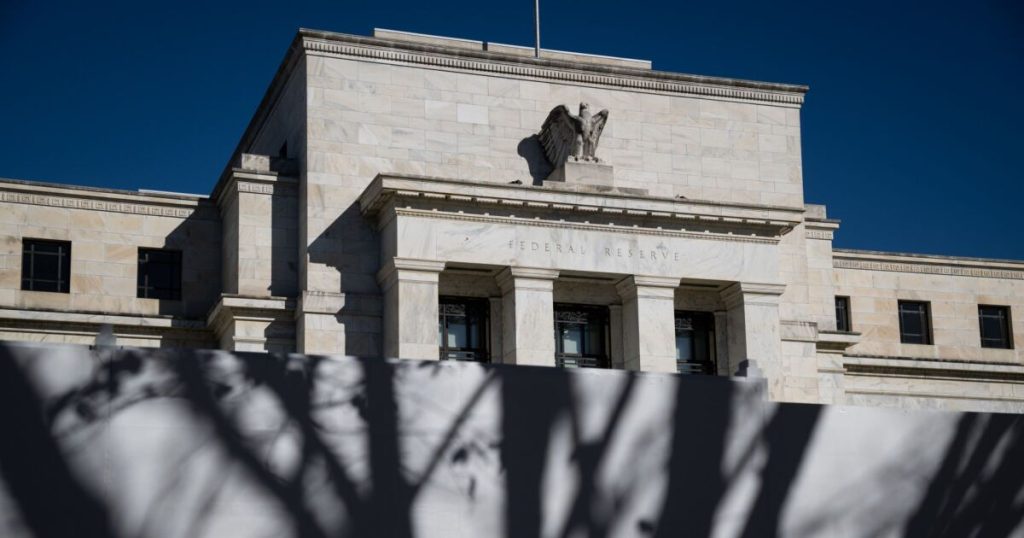Graeme Sloan/Bloomberg
U.S. District Court for North Dakota Judge Daniel Traynor’s recent decision in the case
The price controls were intended to harm politically unsympathetic large banks and the leading debit networks Visa and Mastercard. The Fed’s rule implementing them would have reduced that harm by setting the debit
As a result of the ruling, the debit economics of America’s retail banking colossi BofA, Chase and Wells Fargo will be destroyed. Debit cards earning market interchange fees offered by Capital One, PayPal, Block, neobank Chime, et al., currently have a revenue advantage and therefore can offer better value to consumers. Traynor’s ruling will amplify that edge. They’ll take share.
Two-sided payment networks use interchange pricing to optimize participation on both sides of the network, thereby maximizing total value for cardholders and merchants. So long as issuing credit and debit cards is competitive, interchange fees are pro-consumer; the more competitive, the more pro-consumer. They fund issuer innovation, rewards, free checking accounts, neobanks and financial inclusion.
Debit interchange price controls put a damper on payment system innovation and dynamism, and reduce cardholder rewards, benefits and free accounts. They are, however, the law. The Fed’s job was to implement Congress’ punitive intent as expressed in the law, not to mitigate the harm. Congress, not the Fed, is the policymaker. A rogue absolutist regulator is more dangerous than a bad law.
After its initial implementation of the Durbin Amendment, merchants sued contending the Fed hadn’t faithfully implemented the law. In 2013,
The era of granting agencies license tantamount to lawmaking is over. In June 2024, the Supreme Court
The central bank can no longer hide behind the Chevron doctrine’s skirt.
The Fed’s taken pharaonic and unlawful license implementing debit interchange price controls, shifting billions of dollars between merchants, banks, debit networks and processors, and cardholders. When parties stand to gain or lose the wealth of Croesus from a regulator’s preferences, not surprisingly, they lobby the agency. Merchants, banks and debit networks sought to influence the Fed. Now, for favor, they will have to turn their lobbying sights on the constitutional and politically accountable policymaker, Congress.
The law instructed the Fed to permit debit issuers with more than $10 billion in assets to recoup their incremental authorization, clearing and settlement, or ACS, costs via interchange fees, and documented fraud-prevention costs. Congress didn’t allow for recovery of other costs.
Traynor said, “The Court finds the best interpretation is Congress established a bifurcated system only permitting the Board to include incremental ACS costs in the interchange fee standard. … Congress plainly wanted the Board to establish interchange fees reasonable and proportional to one particular set of costs: ACS costs.”
The Fed rationalized including recovery of fixed debit ACS costs, network fees, transaction monitoring costs and fraud losses. It was not the Fed’s prerogative to rewrite the law to its liking.
The Fed’s inclusion of fixed ACS costs in its debit interchange standard was patently lawless. Transaction monitoring costs are substantially covered by the separate provision for recouping documented fraud-prevention costs. Fraud losses clearly aren’t incremental ACS processing costs.
However, while merchants don’t want to pay them and Traynor ruled they’re not recoverable, variable network processing fees are incremental ACS processing costs.
Momentously, Traynor said setting a single debit-interchange fee standard for all covered issuers regardless of vastly differing incremental ACS costs was unlawful. Setting an interchange price cap by individual transaction or discrete groups of like transactions will near eliminate debit interchange fees for issuing giants.
Anchored in the law’s text, Traynor’s ruling is likely to be upheld. It will roil the debit industry.
Debit interchange for behemoth issuers will be reduced to a couple of cents per transaction, if that.
In 2021,
Economic activity and innovation migrate to less-regulated domains. A whopping
Some banks not shackled by interchange price controls have issued debit cards with large partners with the resources, reach, marketing muscle, and brands to develop and support highly competitive debit programs.
The elephant in the room is Capital One. Its acquisition of Discover is now looking like a masterstroke. Under the Fed’s implementation of the Durbin Amendment, three-party systems where the issuer and network are one in the same, don’t “route” transactions. Consequently, they aren’t subject to the Durbin Amendment. Capital One’s three-party Discover debit cards can offer consumers richer value than competitors fettered by interchange price caps.
To free themselves, goliath debit issuers manacled by interchange price caps can persuade Congress to repeal the Durbin Amendment to restore market pricing. Alternatively, they can buy and build out their own three-party debit networks to escape its price controls.
Judge Traynor’s righteous decision brings a lawless agency to heel. Congress created the problem. Congress needs to be motivated to fix it.

